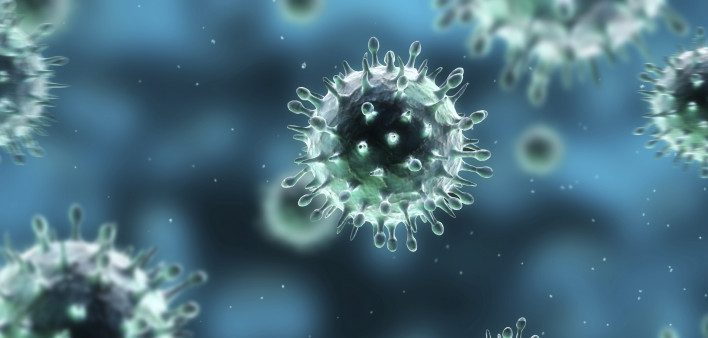Researchers have identified a new molecule they say holds promise as a means of further suppressing HIV that is otherwise well treated by standard antiretroviral (ARV) treatment.
Successful ARV treatment suppresses HIV to undetectable levels in the blood. However, the virus remains hidden in latently infected immune cells that, because they are not replicating, remain under the radar of ARVs, which only operate on replicating cells. This phenomenon frustrates attempts to cure the virus.
Publishing their findings in the Journal of Clinical Investigation, Qingli Niu of the University of Texas Medical Branch (UTMB) at Galveston and colleagues conducted a laboratory study in which they found that a protein called BRD4 plays a key role in regulating the virus’s genetic material in infected cells.
The investigators synthesized and then assessed a number of small molecules for their ability to cause BRD4 to suppress HIV replication. They called the most promising molecule ZL0580, and in further lab experiments found that it delayed the reactivation of HIV in latently infected immune cells taken from people with HIV who were on ARVs after discontinuing ARV treatment of those cells.
“We will continue to optimize the chemical structure and effectiveness of this class of molecules and conduct safety testing in cellular and animal studies,” co-senior author Jia Zhou, PhD, a UTMB pharmacology and toxicology professor, said in a press release. “We look forward to the time when we can begin clinical trials so that this approach can begin to help HIV-infected individuals.”
If these studies show promise, it is possible that this treatment could one day be used as part of an HIV cure strategy.
To read the study abstract, click here.







3 Comments
3 Comments